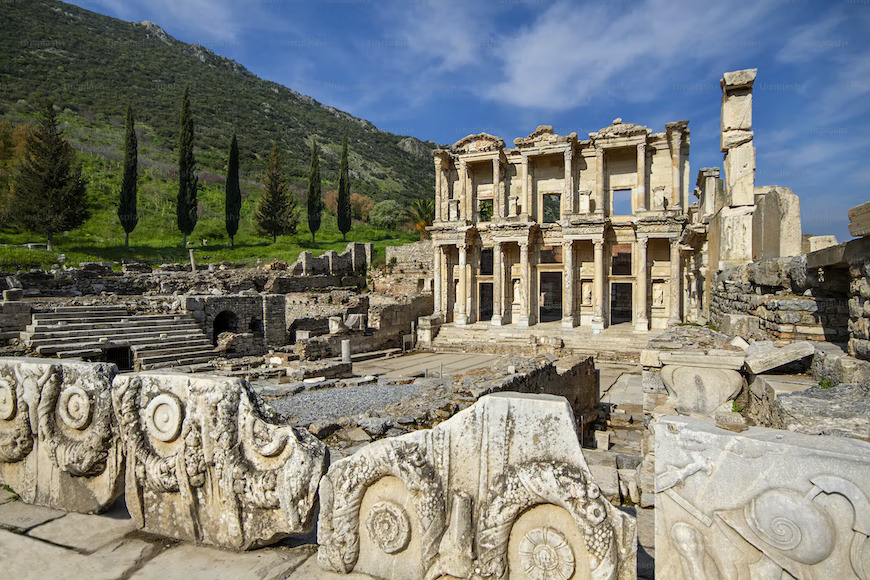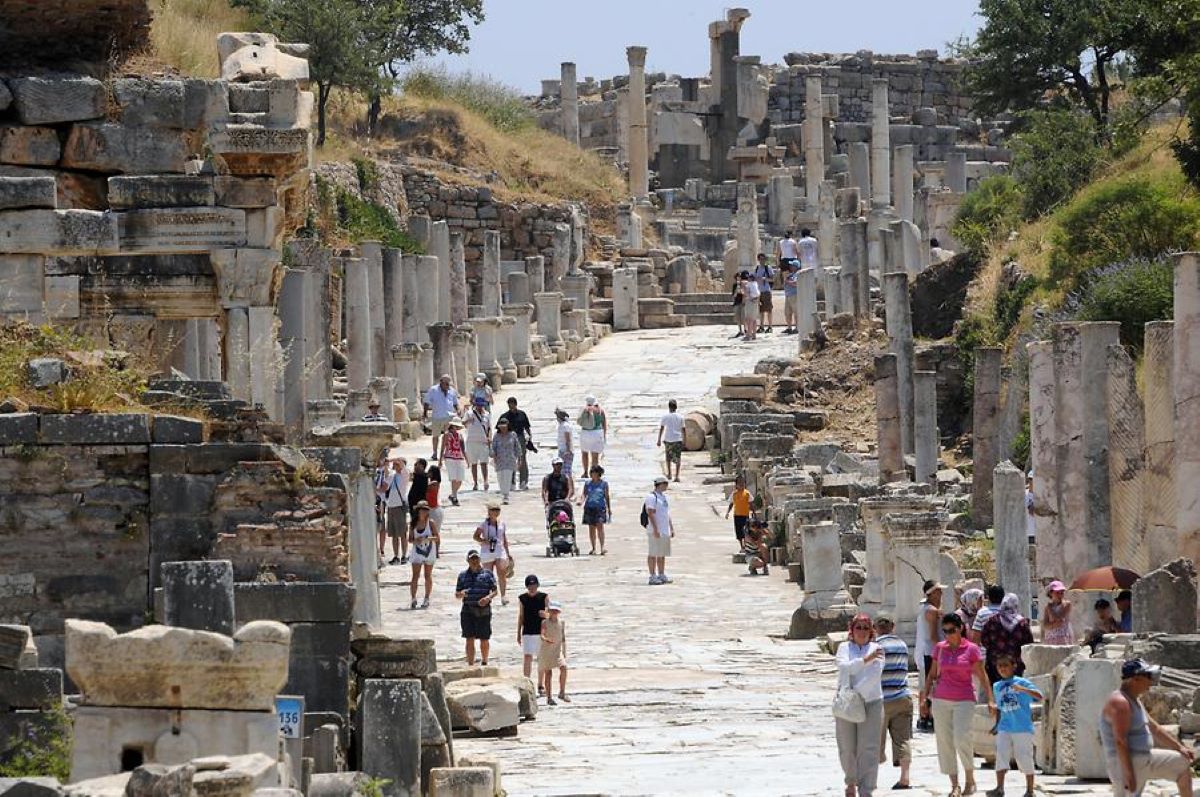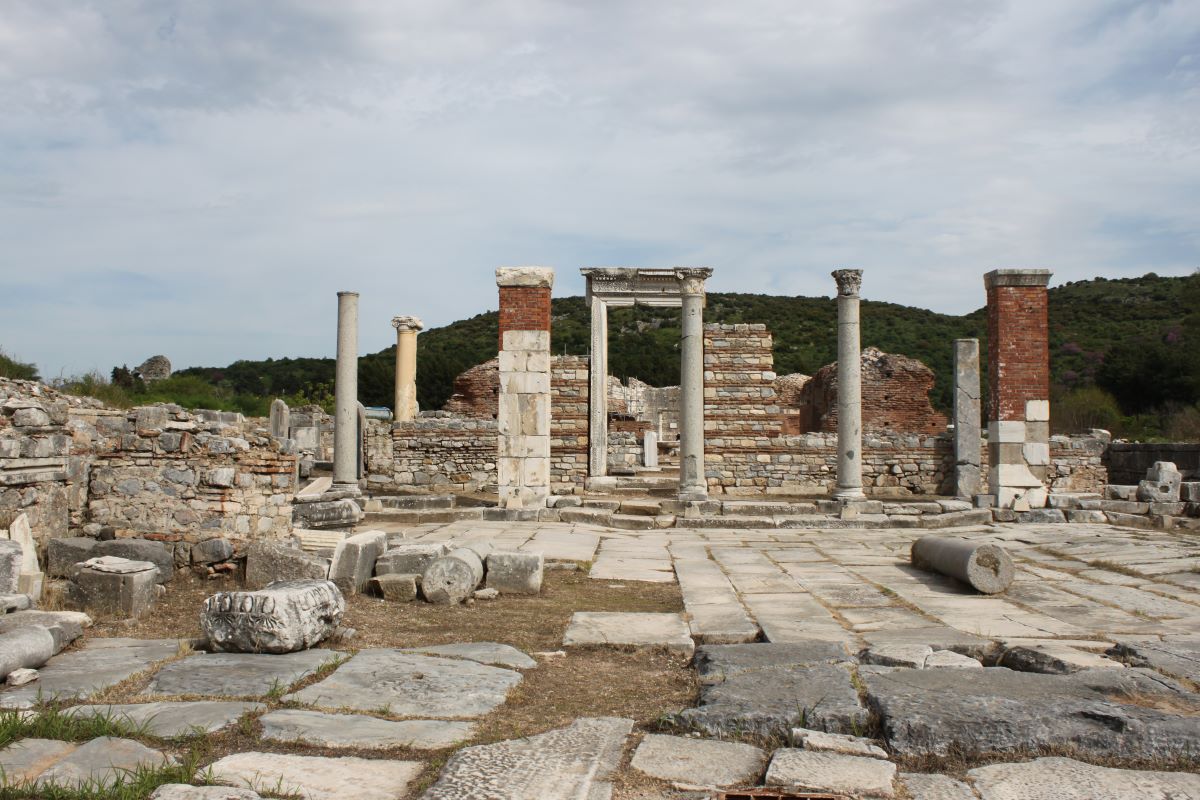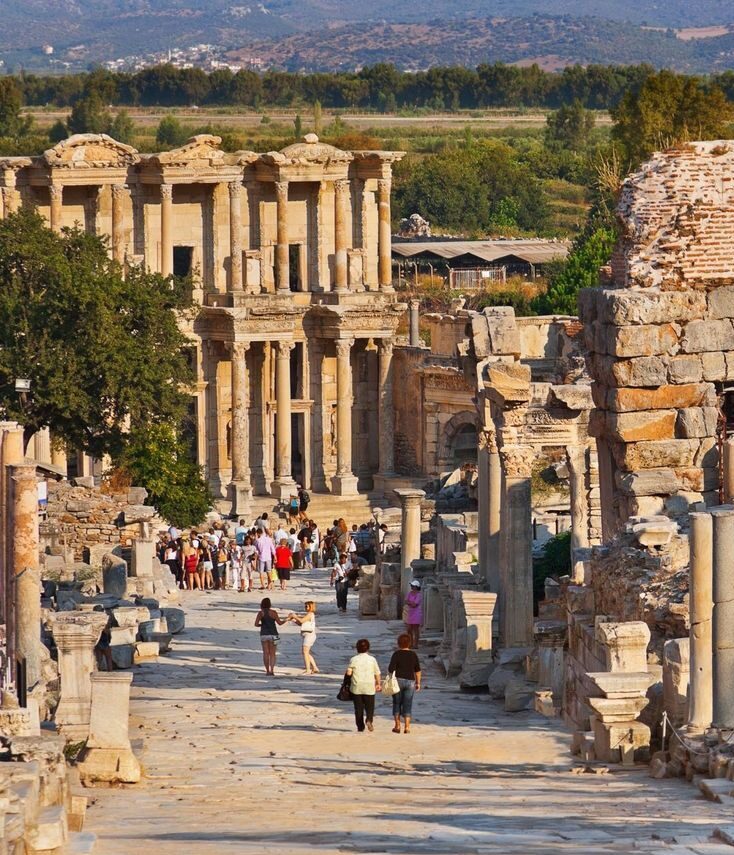The ancient city of Ephesus is a site of remarkable historical significance, with a…

The Importance of Trade and Commerce in Roman Ephesus: A Look at the City’s Bustling Markets
Ancient Ephesus was a bustling city that played a crucial role in the economic and social life of the Roman Empire. One of the key factors that contributed to Ephesus’ prosperity was its vibrant trade and commerce, which were centered around its bustling markets. In this article, we will explore the importance of trade and commerce in Roman Ephesus, with a particular focus on the city’s markets.
Ephesus had a rich historical background, having been established as a Greek colony in the 10th century BCE and later incorporated into the Roman Empire. Its strategic location as a major port city and trade hub in the eastern Mediterranean made it a melting pot of different cultures and a thriving center of economic activity. The markets in Ephesus were at the heart of this economic vitality.
The markets in Ephesus were diverse and widespread. The Agora, a large public square surrounded by shops and stalls, was the main marketplace where a wide range of goods and services were traded. The Celsus Library, an impressive two-story building, also housed shops and functioned as a commercial center. The Harbor Market, located near the port, catered to maritime trade. These markets were not only places of commerce but also served as social and cultural centers in Ephesian society, where people from various backgrounds interacted and exchanged ideas.
The types of goods and commodities traded in Ephesus were diverse and reflected the city’s economic connections with the wider Roman Empire and beyond. Ephesus was known for its production of textiles, such as wool and silk, which were highly sought after in the Mediterranean world. The city also traded in spices, metals, luxury items, and other goods. Many of these goods were sourced locally, but Ephesus also served as a hub for regional and long-distance trade, with merchants and traders from different parts of the Roman Empire and beyond converging in the city to conduct business.
Merchants and traders played a pivotal role in Ephesus’ trade and commerce. They came from different backgrounds, including local merchants, foreign merchants, and freed slaves. They formed commercial networks and trade routes that connected Ephesus to other parts of the Roman Empire and beyond, facilitating the flow of goods and capital. These merchants and traders also had a significant impact on the social and cultural fabric of Ephesus, contributing to the city’s diversity and cosmopolitanism.
The economic and social impact of trade on Ephesus was profound. Trade fostered economic growth by creating job opportunities, generating wealth, and stimulating local production. The city became a vibrant commercial center where merchants and traders from different cultures interacted and exchanged ideas, leading to cultural exchange and the emergence of a diverse society. However, trade also led to social stratification, with a wealthy merchant class emerging in Ephesus and exerting influence on local customs and traditions. Foreign cultures also influenced Ephesian society, resulting in a blend of local and foreign customs and practices.
In conclusion, trade and commerce were of utmost importance in Roman Ephesus, as evidenced by its bustling markets. The city’s strategic location, diverse markets, and active merchant class made it a thriving center of economic activity in the ancient Roman world. Trade not only fueled economic growth but also shaped the social and cultural fabric of Ephesian society. The legacy of Ephesus as a prosperous trade hub continues to be appreciated in modern times, serving as a testament to the vital role of trade and commerce in shaping ancient cities.




This Post Has 0 Comments